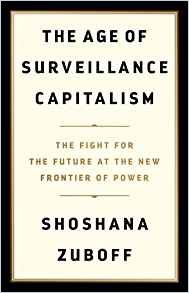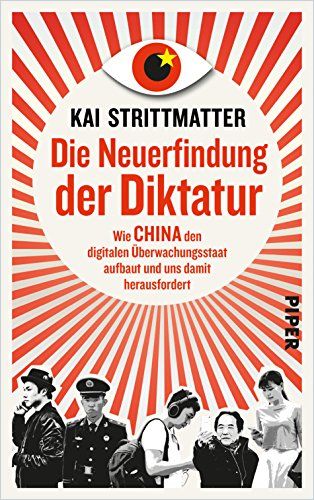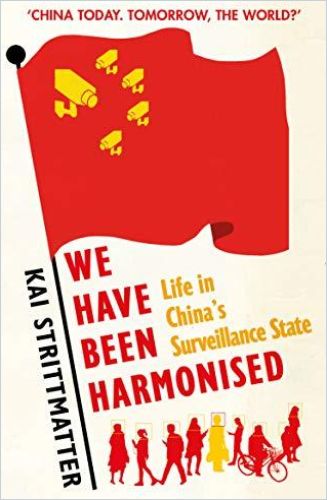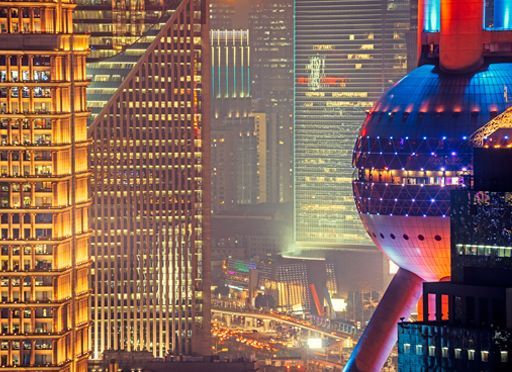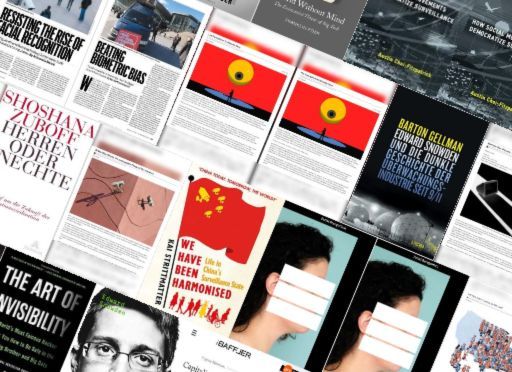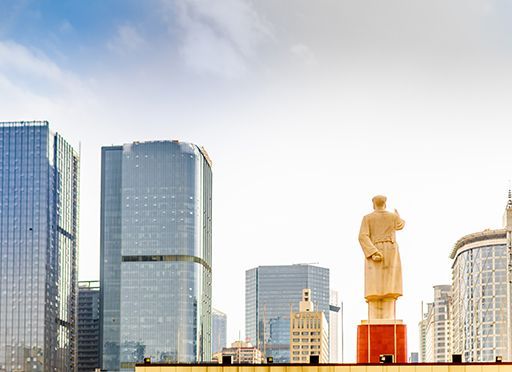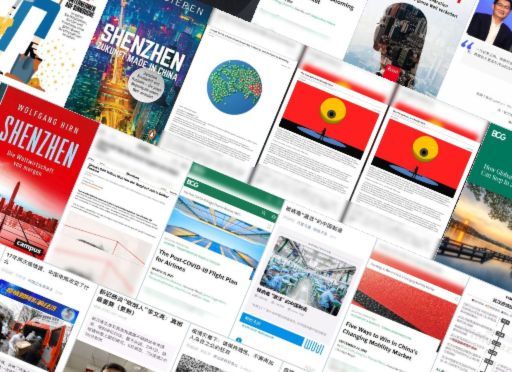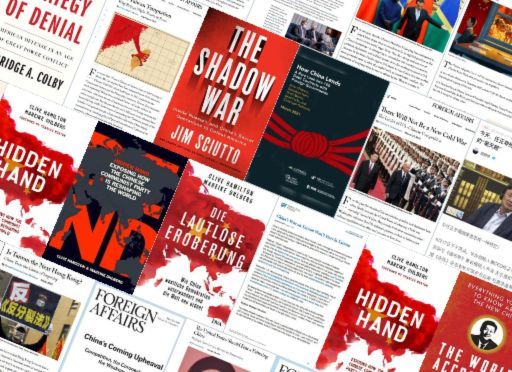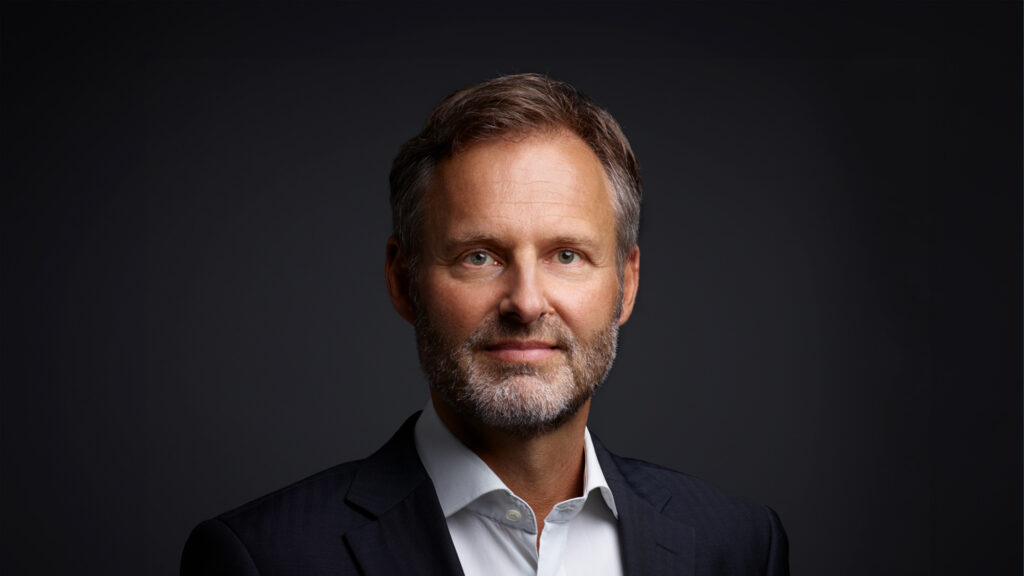“We Can No Longer Afford the Naivety When It Comes to China Under Xi Jinping”

getAbstract: Mr. Strittmatter, in your book “We have been harmonised: Life in China’s Surveillance State” (find a summary of the German Edition here) you deal with an alleged contradiction that China is apparently capable of resolving: the “Middle Kingdom” is a flourishing market economy, but the International Society for Human Rights states that rights violations are part of everyday life in China. For a long time, it was assumed that both would not be possible in the long run. Was the assumption wrong, or did the rules of the game change?
Kai Strittmatter: The West has always hoped for the principle of “change through trade.” The idea: If we only do enough business together and the Chinese thereby adapt their economic life to ours, then society and politics will also become more open and free. That didn’t happen. On the contrary: for seven years now, since Xi Jinping took office, China has been dragged backwards in terms of political liberalization – into a dictatorship that is both highly modern and highly repressive. So our view of China was very naive.
But a lot has happened in society: a large middle class has formed that travels the world, is educated, and is relatively wealthy.
In China, something like a civil society had emerged in the last forty years. Deng Xiaoping had put an end to the cult of leadership, the one-person policy and the centralization of power in Mao’s China. More experiments were permitted, especially economic experiments in cities, regions, and provinces.
And these laid the foundation for the Chinese economic miracle of the last thirty years?
Yes. Many people began to organize themselves differently. Environmental, civil rights, religious groups and sports clubs formed, and they were no longer controlled by the Communist Party. That is what our economists and politicians saw when they visited the country, and that is what led them to believe that progress would also reach the political sphere. But that did not happen. For one simple reason:
The Communist Party never gave up the core of its political claim to autocracy.
It always carried the seed of totalitarianism within it – and Xi Jinping is now actively managing it again.
What does that mean?
Xi Jinping became party leader in 2012 and almost simultaneously, in 2013, the new president of the People’s Republic. Equipped with this power, he turned back the clocks in just six years: he re-identified the West as an ideological enemy, brought back repression, the cult of the leader, the one-person dictatorship. On the one hand, Xi Jinping rhetorically and power-politically brings back the socialism of the 1950s: military demonstrations of power, exuberant nationalism, a strong leader figure. That alone doesn’t have to worry anyone outside China because we have already seen the 50s communists fail several times in the world. But Xi Jinping stands in the past with one leg only. With the other, he plunges himself and China into the future: His regime combines the old ideology with the information technologies of the twenty-first century and tries to turn the historically failed system into a system that will be vastly superior in the future. He reinvents the dictatorship digitally.
But that doesn’t change the fact that closed systems – be they political or economic – in a highly competitive world have no real prospect of long survival.
I wouldn’t be so sure about that. Of course: you hardly see the oppression, the repression by terror with armed force in everyday life. This harsh repression used to be a central component of totalitarian regimes – for example, in Stalin’s or Mao’s socialism. But the terror is still there; it usually just hides in the background: The Chinese know that the system is capable of things one would rather not experience for oneself. And they act accordingly by adapting themselves.
How does the Communist Party achieve the voluntary submission you talk about?
On the one hand, the Chinese are again presented the power of the Communist Party through show and model trials, in which “dissidents” are sentenced to 20 or 30 years in prison, with public appeal and without a real trial. These trials, like the charges, are arbitrary, and therefore so effective – because they can hit anyone, anytime. Xi Jinping combines this repression with blanket censorship, propaganda, and brainwashing. This works.
The narrative of the party is fed to the people from the cradle to the grave on all channels, there are no alternatives to it, neither in everyday life nor on the internet.
In your book, you describe that the CP simultaneously appeals to the reawakened pride of the people. What success does this combination promise?
It nourishes the feeling of “We are back! We are powerful! We are strong! Because: Xi Jinping is strong! And he makes our nation the number one in the world again!” People are almost carried away by this ideological mix of national pride and the spirit of awakening and advancement, which is celebrated much more effectively than the “American Dream” in the USA. The Chinese now even see social credit systems as an opportunity to improve their society. This project is, of course, a piece of the puzzle in the panorama of high-tech repression.
Even the slightest deviation from the desired norm can lead to a dramatic downgrading of individuals, but also of companies or institutions such as NGOs.
Social ostracism and self-censorship then result in the Communist Party no longer having to openly terrorize anyone – people control themselves in the sense of the system.
There is also a lot of talk about the social credit system beyond China. How it works exactly, however, is unclear. Can you shed some light on this?
The fact that there is no uniform information on this is because various such systems are currently being tested, including in various Chinese regions and provinces. The system is to be introduced nationwide as early as next year, but it is unclear which of the pilot projects will prevail or whether there will be a nationwide uniform model at all.
Which one do you think will prevail most likely?
The model most popular with the party for a long time was the one tested in the small town of Rongcheng in Shandong Province. This city is basically a large experimental laboratory: every citizen is integrated into the digital system and evaluated around the clock. You start with 1000 credit points, and depending on how you behave and which contacts you have, you get points added or subtracted. Did you pay your taxes on time? Plus. Are you going to work on time? Plus. Do you cross the red light? Minus. Do you buy more alcohol than the average? Minus. Do you treat your parents well? Plus. All this influences your score. The engineers of the private social credit project “Sesame Credit” run by the Alibaba Group have revealed that young men who regularly buy diapers are considered more trustworthy than those who play online games late at night or have the “wrong” friends online because they are poorly rated in the ranking.
What is the goal of this system?
The official goal is to divide people into two categories. The CP says this quite openly: We must ensure that the trustworthy can “roam freely under the sky,” while the untrustworthy in the country “can no longer take a step.”
And whoever does not meet the requirements in the ranking will be punished?
Absolutely. They can then no longer use airplanes or high-speed trains, for example, or leave the country. There is a blacklist that the Supreme Court introduced six years ago. Recently, this list also communicates directly with the social credit systems, and in 2018 alone, Chinese who were on the list due to an insufficient ranking were blocked more than 20 million times from buying an international plane ticket.
Why is there no resistance?
Because many Chinese support the system. They believe with party propaganda that it makes the people and also the companies in the country more honest and punishes fraudsters and swindlers. The subtle difference to the legal system of the West, for example, is that they don’t have to break any binding laws to fall in the ranking. And political sins are also punished. The algorithms programmed by the CP decide on a case-by-case basis what is positive, correct and good – and what is not.
So the system can be scaled at will and adapted to the party’s needs?
Sure. You get the most negative points in the city of Rongcheng if you comment critically on the party in an online commentary or “take part in illegal religious activities.” If you do, the turnstile in the express train terminal may refuse to serve you the next day – and you may not even know why. So you censor yourself and your neighbors preventively if you don’t want that to happen. In the end, everyone becomes his or her policeman.
You have just spoken of blacklists – Chinese companies and regional governments are now also on one of these, but in the USA. In the trade dispute with China since October 2019, US authorities have been relying on sanctions for institutions that allegedly participated in human rights violations in Xinjiang province.
A reaction to the camps in Xinjiang was overdue, yes.
Is it a question of the USA’s reflection on the defense of civil liberties or is this just a transparent trade policy trick?
Human rights groups such as Amnesty International and Human Rights Watch welcome the move, even if one can argue about the motives of the American government: Donald Trump is not known as a human rights activist; he always runs the risk of using such measures only as negotiating measures in trade wars. After all, this is the first time that any state has taken practical steps against the oppression of Uighurs and other predominantly Muslim minorities in Xinjiang. More than a million people in the region have “disappeared” within one and a half, two years in the newly created gulag – there have been no comparable human rights abuses worldwide in recent decades.
To what extent does it make sense to punish private companies, some of them private, when it comes to violations of human rights that are presumed to have been ordered by politicians?
The companies concerned are Chinese tech companies that not only equip the camps, which are many times larger than their infamous counterparts in North Korea, with appropriate surveillance technology. With the help of these companies, the authorities have transformed the entire province into a hi-tech open-air prison.
Xinjiang is the laboratory for the hi-tech surveillance state. China tests this technology on a “living object.” Everybody knows that, nobody can pretend that the provision of technology in this context is value-free.
Nevertheless, we are touching on a delicate point here: those responsible in the companies have no choice at all because free private enterprise in our sense – protected by the rule of law from state arbitrariness and always acting independently – simply does not exist in China. This means that Chinese companies do what the Communist Party wants them to do. Yet, if the sanctions were consistent, they would also have to affect those responsible in the central government and larger companies that play a central role in China’s international strategy but are not yet on the blacklist.
For example?
Huawei, for instance. I describe this example in my book: two years ago, Huawei arrived as a new player in the high-tech camp state of Xinjiang. Vice Police Minister Xinjiang welcomed the company as a “new soldier” in the “fight for a peaceful Xinjiang” at the opening of the Xinjiang site. And the responsible Huawei manager, who was also the Huawei manager for Western Europe at the time, expressed his gratitude with equally fervent words and emphasized that Huawei would do everything for this struggle and “national security.”
Today, China already ranks second behind the US in terms of research and development spending. By 2030 it wants to be the world leader in artificial intelligence – with Huawei as its first mover. It is therefore foreseeable that there will be an export-oriented combination of two future and key technologies: Surveillance technology and artificial intelligence…
This export economy has existed for a long time. There are excellent studies on how the Chinese export of surveillance and censorship technology is already undermining democracy worldwide. The “Freedom in the World” study by the American think tank Freedom House, for example, found as early as March 2018 that Chinese surveillance technology runs in 36 of the 65 countries surveyed. And in half a dozen of these countries not only the technology is used – these countries also imported the Chinese legislation! Vietnam and Saudi Arabia are two concrete examples.
How exactly does this double import take place?
One of the main exporters is Huawei. The company offers its products, as do large Silicon Valley companies: as “smart.” An export hit is, therefore, Huawei’s “Smart City” system, which is primarily in demand by city governments all over the world. Currently, more than two hundred cities are already using this system – and the trend is rising, because the system is doing what it is supposed to: From intelligent wastewater control to facial recognition in public toilets, the package includes everything to solve real-life problems. Huawei offers various modules, but of course, prefers to sell the whole package. In an interview with political leaders, they say: “Of course, you can only be interested in modules A, B, and C, i.e., perhaps making sewers, traffic and energy supply ‘smart.’ However, we recommend that you take Module D – comprehensive video surveillance with face recognition – with you right away and at a special price. It will automatically improve public safety in your city overnight…”.
“…and you will be re-elected mayor, soon?”
Exactly. And now you are this mayor, in Karachi or Lagos, soon there will be another election, and the offer is also much cheaper than the competition. What are you doing? You strike! These cities, partly whole countries, have one main problem: crime, public security. With comprehensive surveillance, crime rates will fall overnight, and the “digitizing” mayors will be celebrated. Of course, these systems never cure the roots of the problem – poverty, injustice, etc. – but public security improves. And all of a sudden. So, technology is tempting for authoritarian leaders around the world anyway. It is their new instrument of power.
You describe a fundamental trade-off that will not be limited to emerging countries and their major cities in the future. How long will it take for the first Western welfare state, whose citizens love nothing more than improved public safety, to become a customer of such “smart city” services?
The welfare states of Central and Northern Europe, for example, are not necessarily the most obvious customers for the Chinese model. At the moment, the target and sales markets are primarily the developing and emerging countries of the world, in Europe perhaps the Eastern European countries. And yet there are also the first interested parties in Western Europe. Duisburg, a city in Germany, for example, has Huawei set up a smart city concept.
But here it comes into conflict with current law and into competition with the big players in Silicon Valley. So the USP in Europe or the USA is not as clear as in Lagos.
The big American tech companies also enjoy efficient and comprehensive networking and evaluation tools of all kinds. Their managers read the surveillance horror stories from China with a different set of glasses: They often look jealously at China and the supposedly unlimited opportunities that AI companies enjoy there – and suddenly these are no longer horror stories, but business models.
In the end, it is the rule of law that makes the fundamental difference: not all business models are legal, and those who do not abide by the rules become sanctioned.
And the rules and laws are there to protect our freedoms, but also our privacy.
You don’t think much of the often-heard polemic that the differences between China and the US in mass surveillance are only gradual?
Nothing at all. I am regularly stunned when someone tells me it is “the same thing anyway.” Of course, even a currently comparatively unpredictable America is something completely different from a totalitarian China. In the USA, you also have an opposition, critical journalism, an independent judiciary. And it’s no coincidence that it’s not China, but the USA that produces a whistleblower like Edward Snowden…
So let us be optimistic: in the light of current developments, should we recall what we have in our functioning constitutional states?
Yes, we should. At the moment, however, we see in some moments the slice by slice abandonment of this successful model due to economic dependencies. We are dealing with a new China that wants to exert international influence and market its “wisdom” – and that is successful with it. Wherever its interests are affected, China wants to exert influence today and is taking action. And suddenly we see that these interests are everywhere – in Central Africa, in Greece, in Switzerland, in Germany and in the US.
More concretely?
There are many examples of Chinese influence. In the Human Rights Council in Geneva, the CP China is trying to undermine the “universal” model of human rights by installing Beijing’s concept of human rights as equivalent. In science, they are already one step further. Quite a few scientists concerned with China are already practicing self-censorship worldwide; after all, they too are dependent on China; for example, they want to be allowed to enter the country. European universities can set up Chinese professorships with money coming from Beijing; large private science publishers are subject to the demands of the censors there. Even popular magazines are already throwing themselves at the regime: in the Swiss “Weltwoche,” for example, the Chinese ambassador to Switzerland, Geng Wenbing, has been writing a column since this year. It’s blatant propaganda for China’s government. And best of all: the editors of the paper are still patting themselves on the back for the publication of these propaganda pieces – as “heroes of freedom of expression.”
Are there any developments that give you more courage concerning the backbone of the decision-makers who are falling into China’s growing sphere of influence?
At the moment, it is indeed US-Americans who are setting a good example here and there: The Google employees, for example, who have persuaded their management to stop developing a censorship machine for Beijing. Or Adam Silver, head of the National Basketball Association NBA. He did this impressively these days when he defended the manager of Houston Rockets, who had dropped off a support tweet for the protests in Hong Kong and insisted on freedom of speech. The CP reacted promptly: first fan articles of the club were taken out of the Chinese trade, then sponsor contracts were canceled, games of the Rockets were no longer broadcast. According to Silvers’ statement, the NBA television broadcasts were even temporarily cancelled. What makes Silver’s reaction so special is the message it broadcasts:
Some enlightenment achievements are priceless – and some politicians and business leaders still seem to know about that fact, and remain true to their principles even under pressure.
We can use this as a guide. But what we can no longer afford is the naivety of past years when it comes to our image of China under Xi Jinping.
Kai Strittmatter is a journalist, studied sinology, and was a China correspondent for the “Süddeutsche Zeitung” for many years. The German edition of “We have been harmonised” (Old Street Publishing, 2019; Original title: “Die Neuerfindung der Diktatur”) won the getAbstract International Book Award 2019.
Next Steps
For more reading on the topic, visit our China Channels (see below), and the getAbstract International Book Awards 2019 page.
Related Channels: Foreign Politics of China, Inside China, China – History & Politics, Domestic Politics of China, Doing Business in China – and of course the Tech Channels Artificial Intelligence and Surveillance.

